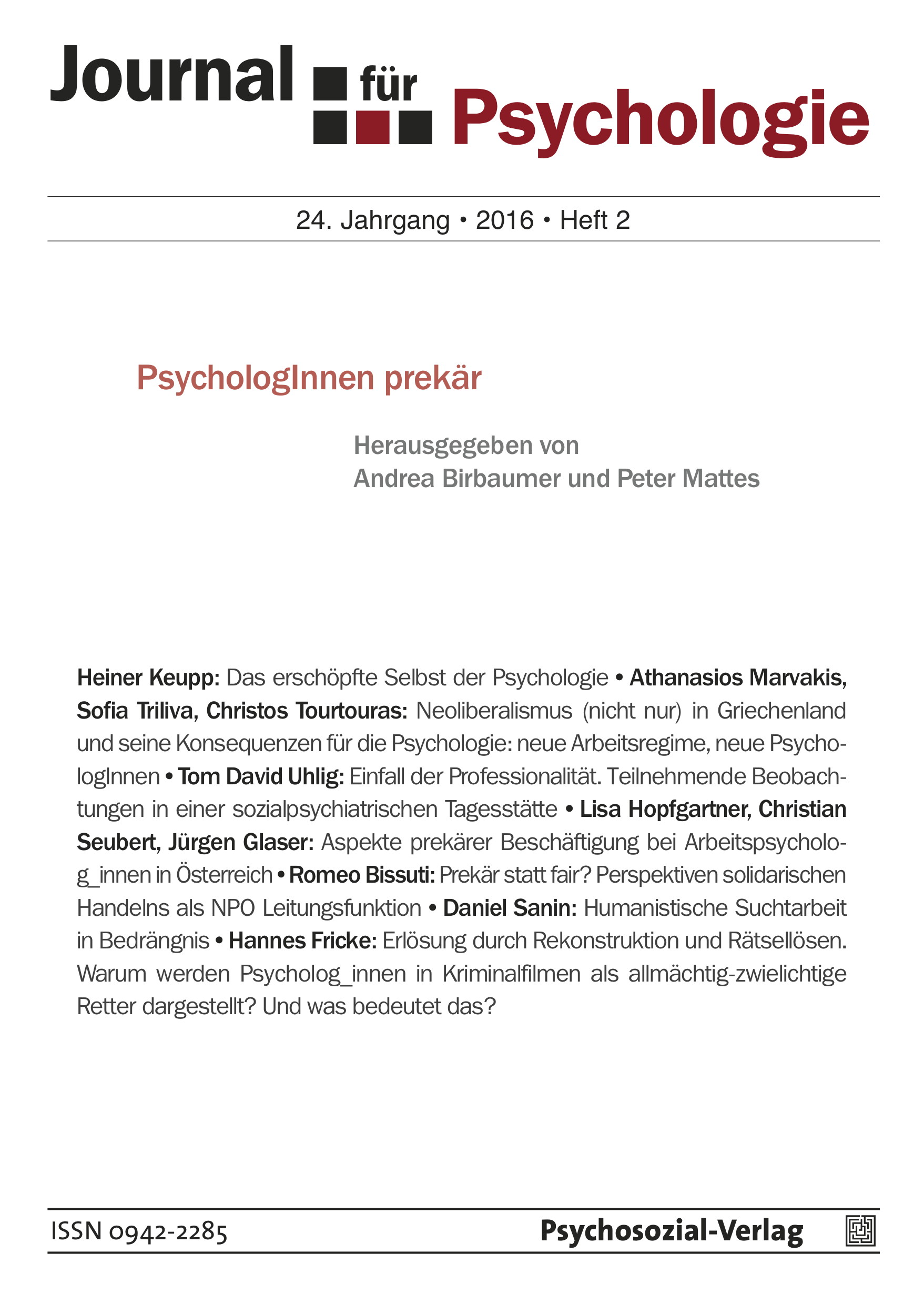Aspects of precarious employment for work psychologists in Austria
Keywords:
precarious employment, work psychologists, occupational profile, role ambiguity, psychological well-beingAbstract
Psychological stressors are on the rise in today’s work systems. Work psychologists are trained to analyze and evaluate such stressors and to derive effective interventions to promote healthy working conditions. However, the general working conditions for work psychologists in Austria are deficient. The present study investigates how precarious employment manifests in work psychologists and identifies its impact on the individual level. N = 122 work psychologists participated in an online study. An insecure and undefined occupational profile was found to be associated with an increased experience of role ambiguity, which, in turn, impaired psychological well-being. These results highlight the importance of a clearly defined occupational profile for work psychologists. We discuss viable approaches to improve working conditions for work psychologists in Austria.Downloads
Published
2016-12-06
How to Cite
Hopfgartner, Lisa, Christian Seubert, and Jürgen Glaser. 2016. “Aspects of Precarious Employment for Work Psychologists in Austria”. Journal für Psychologie 24 (2). https://journal-fuer-psychologie.de/article/view/412.
Issue
Section
Schwerpunkt
License
This license allows private use and unmodified distribution, but prohibits editing and commercial use (further information can be found at: https://creativecommons.org/licenses/by-nc-nd/4.0/).
The terms of the Creative Commons licence only apply to the original material. The reuse of material from other sources (marked with a reference) such as charts, illustrations, photos and text extracts may require further permission for use from the respective copyrights holder.



